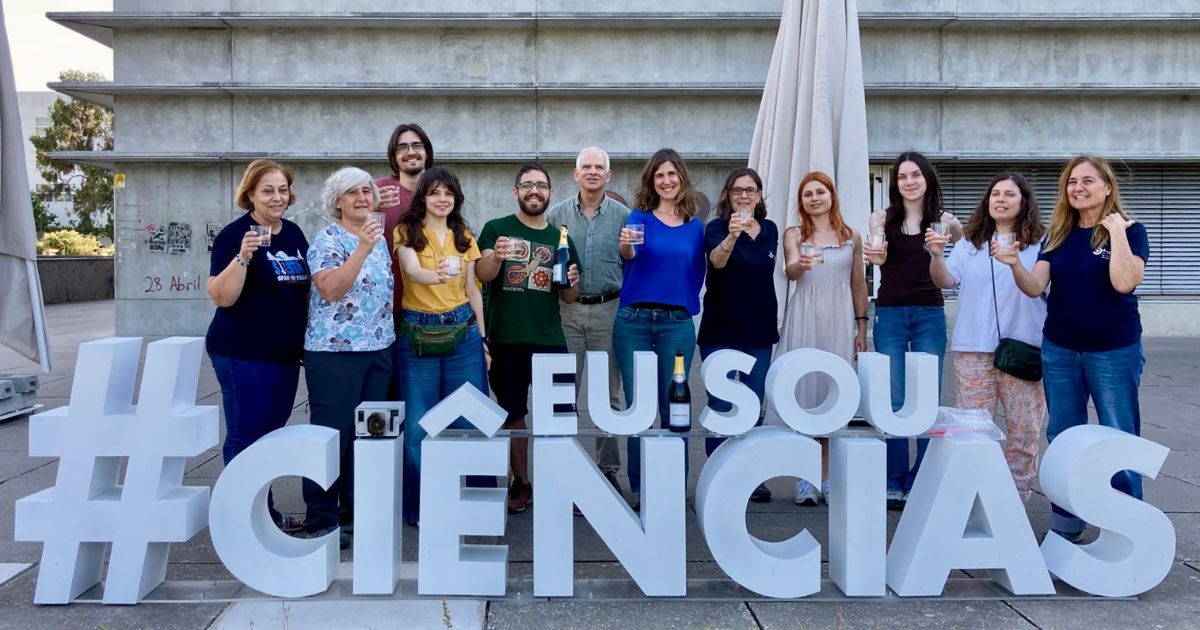The ocean already does a lot for us. It absorbs around 30% of the carbon dioxide (CO₂) we emit and retains more than 90% of the excess heat caused by climate change. But can it do even more?
A team of researchers from MARE/ARNET, CIÊNCIAS, is trying to answer that question. They are involved in an international scientific project that aims to understand whether slightly increasing the alkalinity of seawater can help capture even more carbon from the atmosphere while keeping marine life safe.
The idea seems simple: the more alkaline the seawater is, the more CO₂ it can absorb without becoming more acidic. The technique is called Ocean Alkalinity Enhancement (OAE) and is being tested in 19 countries, including Portugal. The project is led by the University of Tasmania, supported by SOLAS (Surface Ocean–Lower Atmosphere Study) and funded by the Carbon to Sea Initiative, and is called OAEPIIP (Ocean Alkalinity Enhancement Pelagic Impact Intercomparison Project). It's a long name, but with a clear purpose: to find out if this solution can work and what the consequences might be.
A refrigerated room, nine microcosm tanks, and a small marine world
To test the effects of alkalinity
, Catarina Guerreiro and
Ana Amorim from MARE/ARNET and the Department of Plant Biology at CIÊNCIAS, with the support of a large team of researchers from MARE/ARNET,
CQE, IDL,
IPMA and
IH, collected seawater from Cascais Bay. The water was transported to Lisbon and used in microcosm experiments in a specially prepared space at CIÊNCIAS, with controlled temperature and light.
There, in a set of nine transparent tanks, three distinct scenarios were created: one representing natural marine conditions, without alterations; another with seawater to which an ‘unbalanced’ OAE treatment was added, simulating what happens immediately after the addition of alkalinity, before CO₂ enters the water; and a third with water to which a ‘balanced’ OAE treatment was added, simulating seawater that has already reached CO₂ equilibrium with the atmosphere.
Over a period of 20 days, 12 physical-chemical and biological parameters were measured, totalling more than 1,050 observations. Among the main targets of analysis are planktonic organisms, which are microscopic but crucial. These communities form the basis of the marine food chain and play a key role in the global carbon cycle. Knowing how they react to chemical changes in seawater is essential for assessing the ecological risks and sustainability of climate solutions such as OAE.
What is at stake
OAEPIIP is more than a laboratory experiment. It is a global effort to produce comparable and robust data that can guide public policy and decisions about the future of the ocean.
After all, if we want to use the ocean as an ally against global warming, we need to ensure that this help does not harm the ocean itself.
Portugal is now in the laboratory analysis phase of all the samples that were collected during the experiment. In the coming months, the first results should begin to emerge. And with them, perhaps more clues to answer one of the most pressing questions of our time:
Can we correct the atmospheric carbon imbalance without compromising marine life?
More information HERE
Text by Vera Sequeira and Catarina Guerreiro
Photos by Catarina Guerreiro

